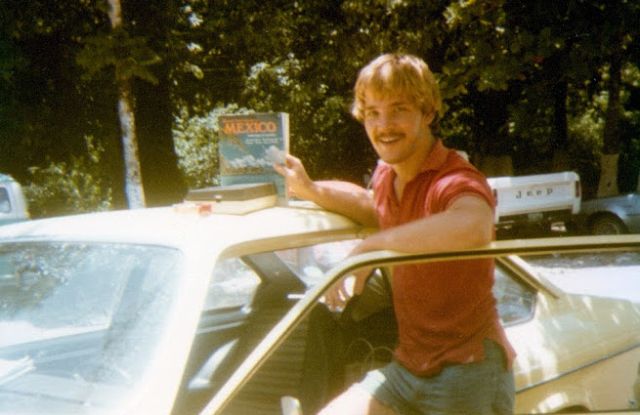5 Steps to Recovering from Broken Trust

So you were in a relationship and got hurt. Welcome to the party. It happens to all of us. And what’s worse – some of us had the misfortune of growing up in families that weren’t safe and were even abusive.
With luck, you set up some boundaries and are feeling safer. Congratulations are in order. Well done! Manipulative people can wound us and make us feel like we were at fault. Jesus didn’t give us a doormat theology.
Some of us were never taught that it was OK to say NO. Not everyone should have access to our spirits. We needed some protection and needed to learn what is appropriate.
Henry Cloud in the book Boundaries helps those of us who struggle to know what’s normal. But having learned to put boundaries in place, then what? We need deep relationships in life. How do we know when it’s safe to get back in the water again?
Let’s just state the obvious: Relationships can be painful and we can recoil by erecting walls around our lives. The question is, after we’ve been burned and doubted ourselves, how do we know that it’s worth the possible pain to put ourselves at risk? What do you do when you sense that the “walled city” phase of your life needs to change?
In a follow-on to his book, Cloud wrote Beyond Boundaries: Learning to Trust Again in Relationships. Sometimes the boundaries that we’ve erected are temporary structures that allow us to heal. But there’s no intimacy without risk. We may need to examine how to modify boundaries or allow certain people access to our lives.
If you’re in that place, Cloud offers a number of strategies. Here are five:
1. Discern the risks
Is the relational wreckage in your rearview mirror part of a pattern in your life or was it a one-off? Perhaps you are naive. Perhaps you struggle with discernment. You may need more help “reading people” than you’ve had in the past. Or perhaps you don’t trust yourself. Feel free to ask for help.
Ask those you trust to discern the difference between a risk worth taking and one that is unacceptable.
Also, assess whether the relationship in question is worth it. Will the person add value to your life? Is God leading you in that direction? Take time to pray about it and ask God to direct you.
2. Is this person connected to good people?
Birds of a feather flock together. If the person in question hangs around others who are not safe, they are likely to pick up bad habits. If the person comes from a family that has practiced good relational hygiene, it is more likely to show up in their relationship with you.
Anyone who hires people for a living knows the value of a good reference. People you trust will help you corroborate what you sense about others.
3. Does this person care about her impact on you?
We all make mistakes, but when we hurt one another, it’s what we do on the other side of that hurt that will show how much we care about the relationship. You want to trust those who are trustworthy. A friend shows themselves to be trustworthy by caring about how they impact you.
You can look at how you feel after having been with them to know if they care. Do you find yourself rehearsing what you are going to say to them the next time you’re together because you’re afraid you’ll come off in the wrong way? Do you feel accepted?
4. Have the hard conversation
Any relationship that has progressed toward intimacy has had it’s share of friction. And part of taking down the big walls around our heart requires that we learn how to say the hard things that protect our heart in other ways.
If you sense that there is an issue that needs to be addressed for your relationship with another person to progress, consider the possibility that you should have a hard conversation. Summon up the courage and say the thing that needs to be said.
5. Deal with the speed bumps
Commitment is in short supply these days. Resilience in relationships is too rarely modeled. We need to recognize that conflict is necessary if we are ever to have the kind of deep relationships that make life worth while. Speed bumps that jostle the spirit are inevitable and necessary.
If you find yourself struggling as you seek to trust, don’t catastrophize. So you had a disagreement along the way. It doesn’t have to be the end of the world. It could be that you were practicing a needed boundary and the person likes you better as a doormat. That’s OK.
* * * *
Jesus asked us to “love one another.” But love can be hard when we feel wounded. While boundaries are an important part of living a stable life, living with your guard up all the time is self-defeating. We need balance.
Where are you on the continuum of trust? Do you trust too easily and find yourself getting wounded? Or do you operate from a place of insecurity, responding too quickly with a defensive remark?
God wants you to love and be loved. It’s essential to living a full life. People deserve to see all the greatness that God has deposited in you. Why not take some steps in the direction of trust today?



A very hard lesson that I am lengthy in the trenches on…………..good post.
Up to our knees now. 🙂
Yes we are, Michelle. Authentic church looks that way!
Thank you Seth. You model what you write and I love and respect that.
Thanks for being a friend, Butch. I love watching you do the hard things that show trust and love. Happy Easter.
To sum it up we need to be about our Father’s business and that requires an active love walk. The trust we need most is to trust HIM with us….our hurts, our emotions, our relationships….all of it. I let too much time pass with my self-erected walls of protection and they were huge. I didn’t even realize how huge they were because of deep hurt. Thank God as I trust Him they are crashing down! We can trust God with “us” and with “them”. He’s the One who will never let us down, will guide us, help us, heal every hurt and wound, and always see us through! Thanks for sharing! Nice reminder!
Amen, Cheryl!
Took a risk and loved someone. Made some big mistakes and got hurt pretty bad. But I am glad I took the chance and put myself on the line. I learned a lot. Still licking my wounds and haven’t quite let go yet, but I didn’t hide. I ran at times, but I crawled back and faced it. So hard, but I took a chance.
Proud of you, Kim! You have come so far in life. When I first got to know you nearly 10 years ago, this would’ve devastated you and punched every button.
But you have done the hard work and you know the truth about who God says you are. It’s work that we all need to do if we are to live in a place of freedom and connection.
Thanks Seth!
This is so appropriate for me to see as I am dealing with working on taking the Pride Bubble from around my heart….something that I put up after dealing with a ton of hurt related to being diagnoised with ADHD at the age of 33
I’m sure you’re awesome just the way you are. Labels are only helpful if they help us relate to reality.